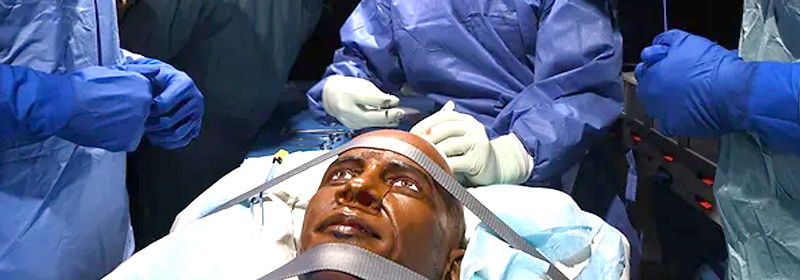Neuro Surgeon

A neurosurgeon is a medical doctor who specializes in the surgical treatment of conditions affecting the brain, spinal cord, and nervous system. They are highly trained in the diagnosis and treatment of neurological conditions, such as brain tumors, head injuries, spinal cord injuries, aneurysms, and neurological disorders.
Neurosurgeons typically work in hospitals, clinics, and academic medical centers, and may collaborate with other healthcare professionals, such as neurologists, radiologists, and oncologists, to develop treatment plans for their patients. They may also be involved in research and education, working to advance the understanding of the nervous system and improve patient outcomes.
To become a neurosurgeon, a person must first complete a bachelor's degree, followed by four years of medical school. After that, they must complete a residency program in neurosurgery, which can last anywhere from six to eight years. Some neurosurgeons also choose to complete a fellowship in a specific area of neurosurgery, such as skull base surgery or pediatric neurosurgery. In addition to formal training, neurosurgeons must be licensed in the state where they practice and maintain certification from the American Board of Neurological Surgery.
Neurosurgeons may specialize in different areas of the field, depending on their interests and training. Some common types of neurosurgeons include:
- General Neurosurgeons: These neurosurgeons provide comprehensive care for a wide range of neurological conditions affecting the brain, spinal cord, and nervous system.
- Pediatric Neurosurgeons: These neurosurgeons specialize in the treatment of neurological conditions in children, including congenital malformations, brain tumors, epilepsy, and spina bifida.
- Skull Base Surgeons: These neurosurgeons specialize in the surgical treatment of tumors and other conditions affecting the skull base, which is the area at the bottom of the skull that supports the brain and other structures.
- Spine Surgeons: These neurosurgeons specialize in the surgical treatment of conditions affecting the spine, including herniated discs, spinal stenosis, and spinal cord injuries.
- Vascular Neurosurgeons: These neurosurgeons specialize in the treatment of conditions affecting the blood vessels of the brain and spinal cord, such as aneurysms, arteriovenous malformations (AVMs), and carotid artery disease.
- Functional Neurosurgeons: These neurosurgeons specialize in the surgical treatment of conditions affecting the function of the brain, such as epilepsy, movement disorders (such as Parkinson's disease), and chronic pain.
- Oncological Neurosurgeons: These neurosurgeons specialize in the surgical treatment of brain tumors and other cancers affecting the nervous system.
- Neurointensivists: These neurosurgeons specialize in the management of critically ill patients with neurological conditions, such as traumatic brain injuries, stroke, and intracranial hemorrhage.
Copyright © 2025, Sadguru Hospital. All Rights Reserved
